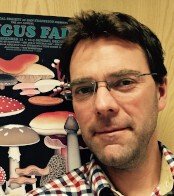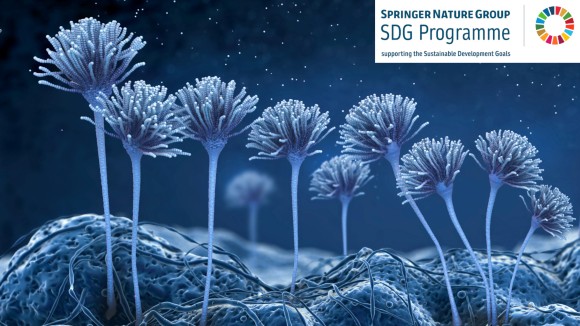 Prof. Matthew Fisher works on pathogenic fungi, microbiomes and antimicrobial resistance, and heads a research group in the MRC Centre for Global Infectious Disease Analysis in the Imperial College London School of Public Health. His research group is focused on developing genomic epidemiology and experimental models to uncover the factors driving fungal infections in order to develop new methods of diagnosis, surveillance and control. He researches ‘One Health’ aspects of the microbe-environment-human interface and co-Directs the Georgina Mace Centre for the Living Planet.
Prof. Matthew Fisher works on pathogenic fungi, microbiomes and antimicrobial resistance, and heads a research group in the MRC Centre for Global Infectious Disease Analysis in the Imperial College London School of Public Health. His research group is focused on developing genomic epidemiology and experimental models to uncover the factors driving fungal infections in order to develop new methods of diagnosis, surveillance and control. He researches ‘One Health’ aspects of the microbe-environment-human interface and co-Directs the Georgina Mace Centre for the Living Planet.
 Dr. Leah Cowen is Vice-President, Research and Innovation, and Strategic Initiatives at the University of Toronto, Professor in the Department of Molecular Genetics, co-Director of the CIFAR Fungal Kingdom: Threats & Opportunities program, and co-Founder and Chief Scientific Officer of Bright Angel Therapeutics, a company focused on development of novel antifungals. She has received a Burroughs Wellcome Fund Career Award, Grand Challenges Canada Star in Global Health Award, E.W.R. Steacie Award, and Canada Research Chair in Microbial Genomics & Infectious Disease. She is an elected Fellow of the American Academy of Microbiology and the American Association for the Advancement of Science. Her laboratory takes an interdisciplinary approach to understand how fungi cause human disease and evolve resistance to antifungal drugs, leveraging fundamental biological insights to advance development of new strategies to treat life-threatening fungal, infectious disease.
Dr. Leah Cowen is Vice-President, Research and Innovation, and Strategic Initiatives at the University of Toronto, Professor in the Department of Molecular Genetics, co-Director of the CIFAR Fungal Kingdom: Threats & Opportunities program, and co-Founder and Chief Scientific Officer of Bright Angel Therapeutics, a company focused on development of novel antifungals. She has received a Burroughs Wellcome Fund Career Award, Grand Challenges Canada Star in Global Health Award, E.W.R. Steacie Award, and Canada Research Chair in Microbial Genomics & Infectious Disease. She is an elected Fellow of the American Academy of Microbiology and the American Association for the Advancement of Science. Her laboratory takes an interdisciplinary approach to understand how fungi cause human disease and evolve resistance to antifungal drugs, leveraging fundamental biological insights to advance development of new strategies to treat life-threatening fungal, infectious disease.

